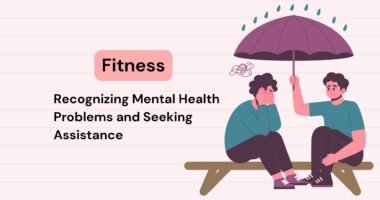The Path to Wellness: A Holistic Guide to Health and Promotion
Health, often described as the ultimate wealth, is a critical aspect of human well-being. Health promotion is not only about the absence of well-being but also about achieving a state of physical social-emotional harmony which is very helpful in health promotion.In an era where lifestyle diseases, stress, and unhealthy habits are on the rise, health promotion has become an essential focus in global public health efforts. This article explores the core concepts of health and health promotion, their importance, strategies for implementation, and the challenges they face.
Defining Health
Health is a multi-dimensional concept that extends beyond physical fitness. The World Health Organization defines health as a state of complete mental, physical and social well-being underscores the interplay between various factors that contribute to overall well-being.
1.Physical Health
Regular exercise, nutritious diet, adequate sleep and physical activity are essential to maintain preventive health care
Mental health includes emotional and psychological stability. It enables individuals to handle stress, make informed decisions, and maintain healthy relationships.
3.Social Health
Social well-being involves building and maintaining relationships within a supportive community, fostering a sense of belonging and purpose.
What is Health Promotion?
Preparedness is a process that enables individuals and communities to improve their health and control issues that affect people’s physical and mental health that goes beyond disease reporting to focus on improving their overall quality of life.
This involves education, community initiatives, and policies that create environments supportive of healthy choices.
Why is Health Promotion Important?
Health promotion is vital for individuals and society as it reduces disease burden, improves life expectancy, and enhances quality of life.
1.Disease Prevention
By encouraging healthier habits, health promotion minimizes the risk of chronic illnesses such as heart disease, diabetes, and cancer.
2.Cost-Effectiveness
Preventive measures save money by reducing the need for expensive treatments and hospitalizations. For instance, anti-smoking campaigns significantly reduce healthcare costs associated with tobacco-related illnesses.
3.Empowered Communities
Health promotion empowers people with knowledge and tools to take charge of their well-being, fostering healthier and more productive communities.
4.Improved Productivity
Healthy individuals are more energetic and productive, contributing positively to the economy and societal progress.
Key Strategies for Health Promotion
To be effective, health promotion must employ diverse strategies that address physical, mental, and social health.
1.Health Education
Education is a cornerstone of health promotion that provides people with knowledge to make informed decisions
Public Campaigns: Awareness campaigns on issues like smoking, balanced diets, and physical activity can inspire large-scale behavioral change.
School Programs: Educating children about nutrition, hygiene, and mental health lays the foundation for lifelong healthy habits.
2.Policy Advocacy
Strong policies are critical to fostering a health-supportive environment.
Tobacco Control: Laws banning smoking in public spaces and increasing taxes on tobacco products have proven highly effective.
Nutrition Standards: Policies promoting healthier school lunches and mandating food labeling encourage better dietary choices.
3.Community Engagement
Communities play a vital role in spreading health awareness and implementing programs.
Local Initiatives: Community fitness classes or clean-up drives promote both physical activity and environmental health.
Support Networks: Mental health groups or addiction recovery programs offer a safe space for individuals to seek help and build resilience.
4.Technology in Health Promotion
The digital era offers innovative tools for health promotion:
Fitness Apps: Apps like MyFitnessPal or Fitbit help users monitor their health goals.
Telemedicine: Remote healthcare services bridge gaps in access to medical advice, especially in underserved areas.
Social Media Campaigns: Platforms like Instagram or Facebook allow health organizations to reach millions with engaging content.
5.Environmental Improvements
Healthy environments contribute significantly to public well-being.
Urban Planning: Creating parks, bike lanes, and pedestrian zones encourages active lifestyles.
Pollution Control: Reducing air and water pollution ensures safer living conditions for all.
Challenges in Health Promotion
Despite its benefits, implementing health promotion strategies is not without challenges.
- Cultural Resistance
For example, some communities may resist vaccinations due to misconceptions.
- Economic Barriers
Low-income populations often lack access to health resources, making it harder to implement health promotion initiatives effectively.
- Misinformation
The rise of health misinformation on social media can undermine genuine health promotion efforts. For instance, anti-vaccine propaganda has fueled outbreaks of preventable diseases.
- Behavioral Change Resistance
Human behavior often changes even more when benefits are difficult Addressing deeply ingrained habits requires patience and persistence.
The Role of Individuals in Health Promotion
While governments and organizations provide a framework, individual actions are equally crucial for successful health promotion.
- Healthy Lifestyle Choices
Individuals should prioritize balanced diets, regular exercise, and mental well-being. Simple changes like reducing sugar intake or walking daily can significantly improve health.
- Advocacy
People can advocate for healthier community initiatives, such as cleaner public spaces or improved healthcare access.
- Staying Informed
Accessing reliable health information and avoiding misinformation is vital for making informed decisions.
- Volunteering
Participating in community programs or campaigns contributes to a healthier society.
Success Stories in Health Promotion
Several health promotion initiatives have demonstrated remarkable success, proving their effectiveness:
- Tobacco Control Campaigns
Programs like “Truth” in the U.S. have significantly reduced smoking rates among teens through creative and impactful messaging.
- Healthy Schools Initiatives
Programs encouraging nutritious school lunches and physical activities have helped combat childhood obesity.
- Vaccination Drives
Immunization campaigns have eradicated diseases like polio in many parts of the world, saving millions of lives.
- Community Fitness Programs
Initiatives like “Parkrun” have motivated people to adopt exercise routines by making them fun and accessible.
Future Trends in Health Promotion
The future of health promotion will likely be shaped by technological advancements and evolving societal needs.
- AI-Powered Healthcare
Artificial intelligence can provide personalized health insights, improving the effectiveness of preventive measures.
- Digital Detox Programs
As technology use grows, promoting balanced screen time and mental well-being will become essential.
- Global Health Collaboration
With the rise of pandemics, international health promotion efforts will be critical for disease prevention and management.
- Holistic Health Approaches
Integrating mental, physical, and social health will be a priority for creating balanced health promotion strategies.
Conclusion
Health and health promotion are fundamental to creating a sustainable and thriving society. By focusing on preventive measures, empowering individuals, and fostering supportive environments, we can enhance the quality of life for people worldwide.
While challenges such as misinformation and resistance to change exist, a collaborative approach involving governments, communities, and individuals can overcome these hurdles. Health promotion is not merely a responsibility—it is an investment in a brighter, healthier future for all.









